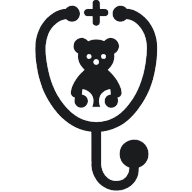4 Tips for Communicating Effectively With Your Pediatrician
Navigating the healthcare journey with a child can be challenging, but effective communication with a pediatrician is key to ensuring the best outcomes. This article distills crucial advice from seasoned healthcare professionals on how to engage in productive dialogues with your child's doctor. From asking the right questions to cultivating a partnership with your pediatrician, unlock the strategies that can lead to more informed and empowering healthcare experiences.
- Ask Open-Ended Questions
- Come Prepared with Specific Questions
- Write Down Questions Before Appointment
- Consider Pediatrician as Your Ally
Ask Open-Ended Questions
One tip for new parents is to ask open-ended questions instead of yes-or-no questions when communicating with your pediatrician.
Why It Works:
Open-ended questions encourage the pediatrician to provide more detailed information and guidance, ensuring you fully understand your child's health and care.
Example:
Instead of asking, "Is this normal?" try asking, "What could be causing this, and what should I watch for?" This opens the door to a more thorough explanation and practical advice.
What I've Found Beneficial:
When I asked our pediatrician, "What steps can I take to improve my toddler's sleep?" rather than assuming it was a phase, I received tailored tips on bedtime routines and possible dietary adjustments that made a real difference. Engaging in this way helps build trust and ensures you leave with actionable advice.

Come Prepared with Specific Questions
As a pediatrician, one of the most important aspects of caring for your child is ensuring clear and open communication between you, the parent, and the pediatrician. A valuable tip for new parents is to come prepared with specific questions and concerns when visiting the doctor. This approach helps you get the most out of your appointment and ensures that no important issues are overlooked.
For example, keeping a detailed record of your child's health—such as changes in behavior, feeding patterns, or sleep routines—can be very helpful. By providing specific information about symptoms, you equip the pediatrician with the details needed to make accurate diagnoses and offer the best care. Studies have shown that when parents share detailed health histories, the accuracy of diagnosis and treatment plans improves.
Additionally, don't hesitate to ask for clarification if something is unclear. Pediatric care often involves medical terminology, and it's essential to leave the appointment with a solid understanding of your child's health. A study published in Pediatric Health Care found that parents who actively engage in their child's healthcare decisions are more likely to follow treatment recommendations, resulting in better health outcomes.
Finally, be honest about any concerns you have, even if they seem minor. Addressing small issues early is better than waiting for them to develop into bigger problems. Remember, your pediatrician is your partner in supporting your child's health, and effective communication helps create the best environment for your child's growth and development.

Write Down Questions Before Appointment
I'd love to collaborate with you! I'm a pediatrician and lactation consultant and I love helping new families! Here are some ideas but I'm happy to discuss more with you! 1. Write down your questions before your appointment: So many times appointments feel rushed, and you've gotten swamped jumping through hoops to get there, so it's easy to leave the appointment and realize later that you forgot to ask your most pressing questions! 2. Feel free to call back: Your doctor or her nurse can address additional questions after the appointment - it's not too late! 3. If at all possible, try to attend appointments without siblings, or have both parents, bring grandma/nanny to help. We are used to navigating a full house, but you may feel less haggard if you can have grandma take big sis to the potty, etc., and you are able to really focus on the child being seen. 4. Make your appointment for the first slot of the day or the first slot after lunch - this decreases your chances of a longer wait or a pediatrician who is already swamped (we are people, too!). 5. Plan ahead: You can review the main goals for the visit beforehand. Is your child due for immunizations or screening tests? Do you need any forms filled out? What are the typical topics for that particular visit that your doctor will surely want to cover? Start the appointment by sharing upfront what you need and hope to accomplish, rather than asking important questions at the end of the appointment time. 6. Know what to expect: Your doctor usually follows this routine: Catch up on any health changes or new developments, do a physical exam, discuss important topics and counseling, address any concerns, and work out a plan for any medical problems and treatments.

Consider Pediatrician as Your Ally
As a parenting consultant and child psychologist, I often partner with pediatricians to collaborate and support children's mental health. I think it is incredibly important for parents to consider their pediatrician their ally and someone who is going to be able to advocate for their child over time. It is important that parents are kind, choose a pediatrician that they feel comfortable with, and communicate clearly what concerns they have as their child develops. The most important part of this partnership - between parents and pediatricians - is that it is a relationship and collaborative. So, choosing someone you can build that relationship with is crucial, and maintaining it with positive and open communication will help!


